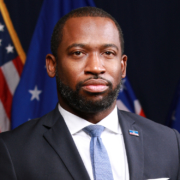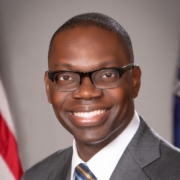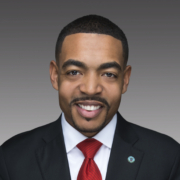ARP: Richmond VA, Investing in Equity Agenda to help Children and Families Thrive
With an eye toward a more inclusive future, Richmond, Virginia is centering an infusion of federal funds on advancing its equity agenda. In this agenda, which the City Council passed unanimously in May 2021, equity is defined as, “empower[ing] people and communities that have experienced past injustices by removing barriers to access and opportunity.”
Led by Mayor Levar Stoney, Richmond is leveraging $155 million from the American Rescue Plan to embrace and advance the city’s commitment to equity.
Children and Families
The city’s largest investment – $78 million – is focused on children and families. More specifically, much of the funding will go towards community centers, walking trails, and access to green spaces. In fact, the new and refurbished community centers will be within a ten minute walk of 100,000 residents who previously lacked access to such spaces so close to their homes.
During outreach conversations, community centers were a major desire of Richmond residents. And not just buildings, but spaces that incorporate multi-generational opportunities for all residents. Places where children could play sports during the day, families could receive assistance applying for benefits, and senior citizens could learn computer skills or play Bingo in the evening.
While looking to the future, Stoney and his team are not neglecting the difficulties some residents continue to face in light of the COVID-19 pandemic. In order to help families with needs such as child care, food, housing costs, or transportation, the city is providing Visa gift cards to families experiencing hardships through a second iteration of the Family Crisis Fund. The direct cash infusion allows families to use the funds on what they need most.
In order to lift up the struggling child care sector, Richmond once again turned to its equity agenda for guidance. The city will invest $1 million in the stabilization and expansion of high-quality child care programs and preschools. Of this, $500,000 will be made available to eligible nonprofit and charitable organizations through direct grants from the Office of Children and Families; an additional $500,000 will be disbursed by Smart Beginnings of Greater Richmond in order to support private businesses like family day homes that offer these services but are ineligible for grants from the city.
Update:
Richmond Mayor Levar Stoney celebrated the opening of a new child care facility, made possible by $300,000 in American Rescue Plan funds. The new center will serve children between the ages of two months and five years, giving Richmond families another option for high-quality care. Overall, Stoney has invested more than $600,000 in federal funding for new child care facilities, allowing more than 200 Richmond families to have access to affordable childcare. Mayor Stoney added, “Every Richmond family with children under 5 deserves to have access to preschool programs that meet their unique needs, including full-day, full-year programs like Sprout School.”
Housing
Stoney is also using ARP funds to renovate and improve two of the city’s public housing complexes. The city will spend $6.8 million to redevelop the 68-year-old Creighton Court public housing community, replacing 504 existing units with up to 700 new apartments and homes. This investment will greatly benefit the East End community, and continue the new construction of quality, affordable housing for over 500 families
Another $5.5 million will go towards redeveloping the Highland Grove Redevelopment Project in North Richmond. These dollars will allow for the first phase of this redevelopment – which will ultimately results in 122 new for-sale homes.








